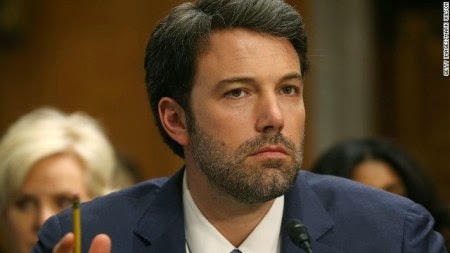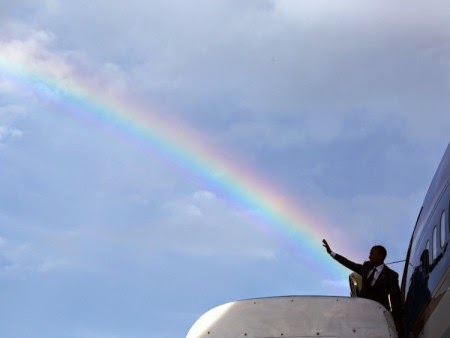In a Vox poll taken last month, an overwhelming majority (85 percent) of the
respondents claimed to support equality for women, but a mere 18 percent were
willing to label themselves feminists. To understand why the disconnect is so
striking, look no further than the controversy attending recent university
talks presented by “Factual Feminist”
vlogger and writer Christina Hoff Sommers.
Ms. Sommers, author of the must-reads Freedom
Feminism, The
War Against Boys, and Who
Stole Feminism?, spoke
recently at Georgetown University on the topic “What’s Right (and Wrong) About
Feminism” at a standing-room only, Clare Booth Luce Policy Institute-sponsored
event. You can see that here. If you’ve ever
seen her speak in the media or on YouTube, you know that there couldn’t be a
friendlier, less threatening face of feminism.
And yet she was greeted, if you can call it
that, by a small faction of horrified students who issued “trigger warnings” for
anyone who might be traumatized by her “hate speech,” notices of “safe spaces” elsewhere
as refuge from her intimidating presence, and ludicrous accusations that she supports rape. Protesters also made their own presence felt
during the speech itself. These students didn’t simply disagree with Ms.
Sommers – they didn’t want her viewpoint heard, so they resorted to demonizing
her.
Predictably, there was more of the same at Ms.
Sommers’ more recent talk at Oberlin College, where she was hosted by the
Oberlin College Republicans and Libertarians (OCRL). Among the messages posted on campus in advance of the talk were such misrepresentations and
shameful lies as “Christina Hoff Sommers and OCRL support rapists!!” and “F*ck
anti-feminists.” Shouldn’t college students at least be able to exhibit a broader
vocabulary than the F-word?
Prior to Ms. Sommers’ Oberlin talk, two young
women made an announcement to the audience about a “safe space”
alternate event, where they warned that they wouldn’t allow any “toxic people.”
When one of the pair urged anyone with questions to come talk to them, the
other half-joked that “We’re pretty cool. We only bite people we dislike” – in
other words, people with whom they disagree. You know, toxic people.
In attendance was a male blogger from Third
Base Politics, who reported on the unconcealed hostility toward Ms. Sommers. It’s worth quoting him
at length to get the full feel of the protesters’ petulant extremism:
Many in the audience were quite rude and
frequently interrupted Sommers. Many students sat in the audience with duct
tape over their mouths, inferring that Sommers’ mere presence was an attempt to
silence them. Ironically, by labeling her a “rapist supporter” and interrupting
her, they were actually striving to silence her.
For most in the audience, rational discussion
of facts is not even welcome.
[Snip]
Don’t give me facts. Just shut up. That’s how
Sommers was responded to.
At the end, Sommers took questions. All but
one were obviously hostile to her presence, and she took questions from an
equal number of male and female attendees. A female student behind me exclaimed
“Oh look! She called on a boy!” every single time she took a question from a
male student, even though every one of the male questions she received was
equally as hostile to her as the female questions.
After taking questions from three women in a
row, she took the final question from a man. The student behind me again
remarked “Oh look another question from a boy!”
I politely asked her, “But weren’t the last
three girls?”
She glared at me and said, “This is an event
about FEMINISM!”
So, as far as these loud-and-proud feminists
are concerned, males aren’t allowed to express ideas or opinions about
feminism, even when they align with those of the females in the audience. That’s
because they don’t view men, even sympathetic ones, as partners in resolving
the growing divide between men and women, but as the enemy. Men are guilty of
“rape culture” simply by virtue of their genitalia. It’s the very definition of
sexism and bigotry.
Even before
Ms. Sommers’ appearance, dozens of feminists signed a letter to the Oberlin Review called “In
Response to Sommers’ Talk: A Love Letter to Ourselves,” a title which fittingly
captures their insistence on wrapping themselves in a protective layer of
self-righteous narcissism. The fact that they “responded” to her talk even before
having heard it speaks volumes about their closed-mindedness.
The letter included this dismissive gem: “We
could spend all of our time and energy explaining all of the ways [Ms. Sommers
is] harmful. But why should we?” Well, you should because without specifics and
evidence, your accusations have no merit or substance.
This is the reason so many people today
reject the “feminist” label despite supporting equality wholeheartedly: the
movement has been hijacked by a radical minority of intellectually intolerant
and militant misandrists whose rude, crude fanaticism alienates the rational
majority represented by Christina Hoff Sommers. Their bitterness, anger,
resentfulness, and determination to perpetuate the War Between the Sexes are
not shared by most Americans, male or
female.
The militants will learn this the hard way when
they depart their safe spaces on American campuses where their sensitivity is
coddled, and they enter the real world where – at least for now – there is no shield
against facts and different viewpoints.
(This article originally appeared here on Acculturated, 4/28/15)











